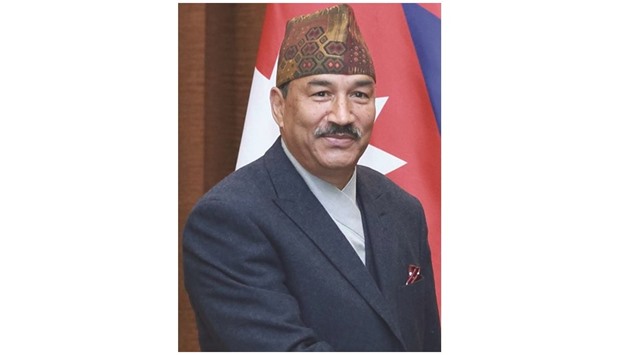The Chinese government has agreed to provide 1.4mn litres of fuel worth $1.5mn to Nepal as a grant, Deputy Prime Minister and Foreign Minister Kamal Thapa said yesterday.
Earlier in October, China had provided 1.3mn litres of petrol to Nepal to cope with the severe fuel crisis that followed the blockading of the Nepal-India border in the wake of the Madhesi agitation against the new Constitution.
Nepal Oil Corp transported the fuel provided by China from Kerung in Tibet to
Kathmandu.
A commercial deal in the pipeline to import fuel from China will end the more than five-decade-old Indian monopoly in supplying petroleum products to landlocked Nepal.
Nepal has started cosying up to China for importing fuel, trade diversification and transit facilities after supplies from India were reduced to a trickle following the blockade along key Nepal-India entry points resulting in crippling shortage of essentials.
Kathmandu signed its first ever fuel agreement with Beijing on October 28 to import petroleum products to ease the shortages.
Thapa informed the media about the agreement to import fuel from China upon his return from a weeklong visit to China yesterday.
He said the visit was successful in creating permanent economic framework with China, whose scope included trade, transit, connectivity and investment.
The permanent economic framework will be signed during the China visit of Prime Minister K P Oli which is likely to happen in the first half of the next year, he added.
During the visit, Nepal and China are likely to sign a trade and transit treaty, a bilateral investment protection and promotion agreement, and a free trade agreement.
The formal agreement for the import of fuel from China would be signed during Prime Minister K P Oli’s China visit, Thapa said.
edged between China and India, Nepal is recovering from a decade-long conflict between Maoist rebels and government forces which ended in 2006.
Years of political instability have slowed development efforts and two deadly earthquakes in April and May this year, have further hampered efforts to lift 25% of the country’s 28mn people out of
poverty.
Under these circumstances, central bank spokesman Pangeni says it is the most vulnerable who are hardest hit.
“They are hotel workers forced to stay on leave because hotels have cut down on services due to fuel shortage. Transport workers have lost jobs, rickshaw pullers are out of work,” he said.
“Tens of thousands of people who were self-employed in small pavement businesses like tea and coffee shops, cake shops, street vendors are out of work. All these people have no income.”
The government of Prime Minister Khadga Prasad Sharma Oli has offered to amend the three-month-old charter to address some of the key concerns of the ethnic
Madhesi protesters.
Several rounds of negotiations between the government and protest leaders have failed amid differences over how to change the internal boundaries of newly created federal states.
Protesters say the entire southern plain region, Nepal’s bread basket, must not be split into more than two federal provinces. They now form part of six of the seven provinces dominated by hill dwellers.
Humanitarian agencies have warned that with health care facilities lacking over half of their total essential requirements, the humanitarian implications were “grave”.

Deputy Prime Minister Kamal Thapa: u201cThe formal agreement for the import of fuel from China would be signed during PM Oli’s China visit.u201d
